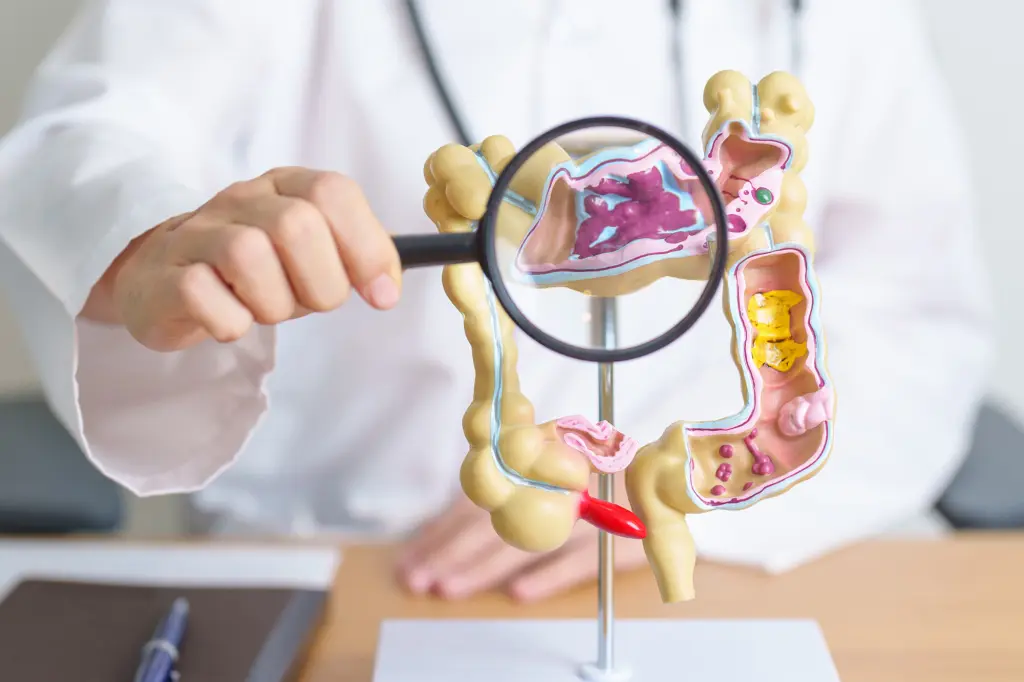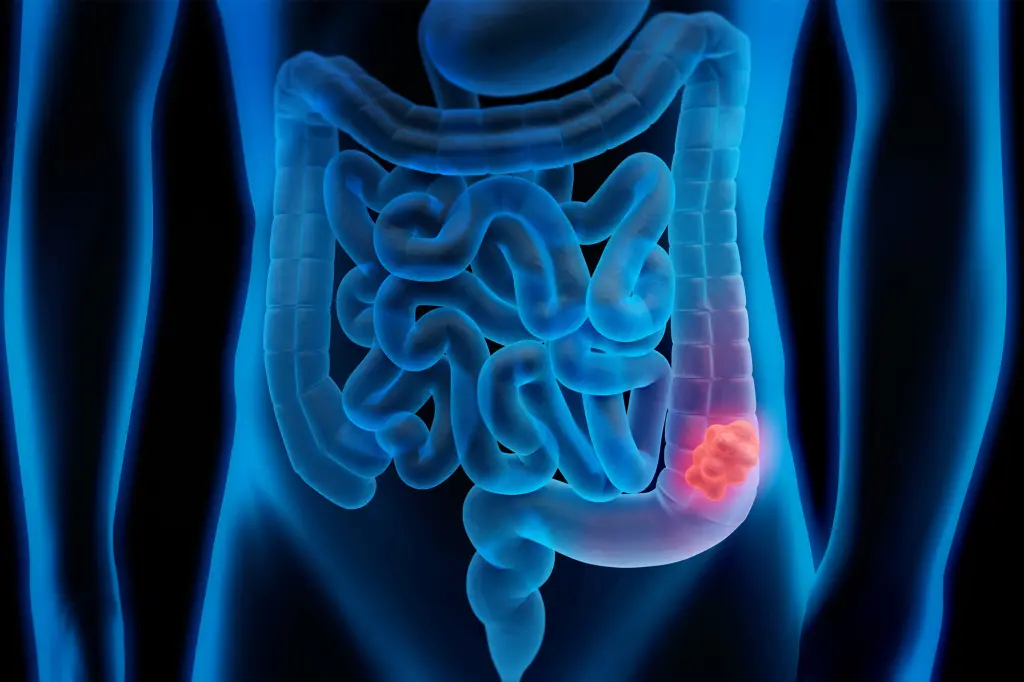Colorectal cancer, which includes cancers of the colon and rectum, is on the rise, especially among younger adults. It’s now one of the leading causes of cancer-related deaths worldwide, affecting about 150,000 Americans annually. Early detection is crucial, but the symptoms can be subtle and are often mistaken for other, less serious conditions. As a doctor, I want to emphasize the importance of recognizing the signs that could potentially indicate colon cancer. Let’s break down the five concerning symptoms you should never ignore.
Why Colon Cancer Rates Are Rising Among Young Adults

Over recent years, medical experts have observed an increase in colorectal cancer diagnoses among individuals under 50. While the exact cause remains unclear, factors like diet, lifestyle, and genetics could play significant roles. Unfortunately, younger people are often diagnosed at later stages because the symptoms can be attributed to more common, benign conditions. That’s why awareness of early warning signs is critical for timely intervention and treatment.
1. Pencil-Thin Stools: A Red Flag for Tumors
If you notice your stools becoming pencil-thin, it could be a cause for concern. Dr. Waqqas Tai, a cancer specialist, points out that narrow stools might indicate a tumor in the colon. When a tumor develops in the colon’s lining or towards its end, it narrows the passage through which stool exits, resulting in thinner stools.
What Causes Pencil-Thin Stools?
- Tumor Obstruction: As a tumor grows, it can partially block the colon’s pathway, changing the shape of stools.
- Inflammation: Inflammation caused by polyps or tumors can also lead to narrow stools.
While thin stools can occasionally be linked to dietary factors or conditions like irritable bowel syndrome (IBS), persistent occurrences should not be overlooked. It’s a strong reason to consult your doctor and consider a colonoscopy for a closer examination.
2. Blood in the Stool: Not Always Hemorrhoids
Finding blood in the toilet can be alarming, but many people assume it’s just hemorrhoids. Dr. Michael Cecchini, co-director of the colorectal program at Yale Cancer Center, emphasizes that rectal bleeding should always be investigated, as it could be linked to colon cancer, among other conditions.
Common Causes of Rectal Bleeding:
- Hemorrhoids: Swollen veins in the rectum or anus can cause bleeding.
- Anal Fissures: Small tears in the lining of the anus can lead to blood in the stool.
- Polyps and Tumors: These growths can bleed, signaling potential colorectal cancer.
If you experience rectal bleeding, don’t brush it off. Even if it’s painless, it warrants immediate medical evaluation to rule out more serious underlying causes, including cancer.
3. Anemia: A Hidden Symptom of Bleeding Tumors
Anemia, or a low red blood cell count, can be a subtle yet significant sign of colon cancer. It’s especially concerning when detected in men or women who do not have heavy menstrual cycles. Research shows that anemia is present in 30% to 75% of colorectal cancer cases.
Why Does Anemia Occur?
- Internal Bleeding: A tumor in the colon can slowly bleed over time, leading to iron deficiency anemia.
- Chronic Fatigue: Anemia often causes fatigue, dizziness, and shortness of breath, which can be debilitating over time.
If you’re diagnosed with anemia, your doctor may recommend a colonoscopy to identify potential bleeding sources in the digestive tract. Remember, unexplained anemia should never be ignored, as it could be the body’s way of signaling a serious condition.
4. Severe Constipation or Diarrhea: A Sign of Tumor Obstruction
@drwaqqastai 5 symptoms of colon cancer #coloncancer #doctor #coloncancerawareness #healthcare #medicine ♬ original sound – Dr. Waqqas Tai | Cancer Doctor
Changes in bowel habits, particularly alternating between severe constipation and diarrhea, can indicate a blockage in the colon caused by a tumor. While such symptoms can be related to other gastrointestinal disorders, they should still be a reason to visit your doctor.
Why Bowel Changes Matter:
- Constipation: A growing tumor can block the colon, making it difficult for stool to pass.
- Diarrhea: In some cases, liquid stool manages to pass around the obstruction, causing diarrhea.
If these symptoms persist for more than a few weeks, it’s crucial to get evaluated. A colonoscopy can help detect potential obstructions, including tumors or polyps that need further investigation.
5. Unexplained Weight Loss, Fevers, and Night Sweats: Serious Signs

Unexplained weight loss, fevers, and night sweats, often called “B symptoms,” are common warning signs of many cancers, including colon cancer. Dr. Tai emphasizes that if you’re experiencing these symptoms along with gastrointestinal issues, it’s vital to consult a healthcare professional.
Understanding “B Symptoms”:
- Weight Loss: Losing weight without trying can signal that the body is fighting something serious, such as cancer.
- Fevers: Random fevers can be a sign of an infection or inflammation caused by cancer.
- Night Sweats: Waking up drenched in sweat can be related to hormone fluctuations caused by cancer.
These symptoms should be taken seriously, especially when combined with other warning signs like changes in bowel habits, anemia, or rectal bleeding. Early detection can make a significant difference in treatment outcomes.
Getting Screened for Colon Cancer: Why It’s Essential
The U.S. Preventive Services Task Force recommends routine screening for colorectal cancer beginning at age 45 and continuing until 75. People with a family history of colon cancer, inflammatory bowel disease, or any of the symptoms mentioned above may need to start screening earlier.

Why Colonoscopy is Important:
- Early Detection: Colonoscopy is the gold standard for detecting polyps, tumors, or any abnormalities in the colon.
- Life-Saving: Early detection through screening can prevent cancer progression, significantly improving survival rates.
Dr. Tai emphasizes that colonoscopies are straightforward procedures that could save your life. If you’re experiencing any of the symptoms mentioned, don’t hesitate to consult your primary care doctor and get screened.
Conclusion: Don’t Ignore the Warning Signs
Colon cancer doesn’t discriminate—it can affect anyone, regardless of age or lifestyle. While some of these symptoms may be caused by other, less serious conditions, they should never be ignored. If you experience pencil-thin stools, rectal bleeding, anemia, severe constipation or diarrhea, or unexplained weight loss, fevers, and night sweats, it’s time to see your doctor.
Taking action today can make all the difference tomorrow. Early detection can lead to effective treatment, offering the best chance for a positive outcome. So, listen to your body, prioritize your health, and don’t shy away from screenings—because when it comes to colon cancer, prevention truly is the best medicine.


